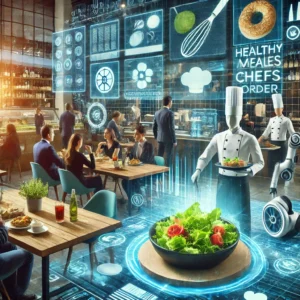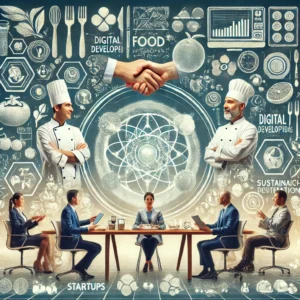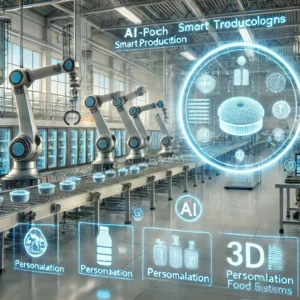Navigating the Future of Food & Beverage Innovation
- Phone: +1(833)PHX-Geek
- 712 H St NE Suite 1904 Washington, D.C. 20002
Take a look at our camera system. Get remote access to your cameras, and monitor your restaurant while you are away. Great protection for you from theft, employee grift and wrongful lawsuits.
Introduction
The food and beverage industry is constantly evolving, driven by changing consumer preferences, regulatory pressures, and technological advancements. However, with these changes come significant challenges. Supply chain disruptions, food safety concerns, and the need for sustainability are key issues that manufacturers must navigate. Companies need to be agile, adapting quickly to these challenges while also anticipating future trends.
Moreover, the rapid pace of innovation can lead to increased competition and market saturation. Brands must differentiate their products in a crowded marketplace, which often requires significant investment in research and development. Maintaining a balance between innovation and cost-effectiveness is crucial for long-term success in this dynamic sector. 
Lastly, staying in compliance with ever-changing regulations presents another layer of complexity. Food and beverage companies must not only adhere to local laws but also be cognizant of international standards, which can vary widely. Understanding these challenges is the first step toward harnessing the opportunities they present.
In recent years, the beverage industry has seen a surge in demand for healthier, functional drinks. Consumers are increasingly looking for beverages that offer more than just refreshment; they desire products that enhance their overall well-being. This trend presents a significant opportunity for manufacturers to innovate, creating drinks fortified with vitamins, minerals, and probiotics.
Additionally, the rise of plant-based and alternative beverages is reshaping the market. As more consumers adopt vegan and vegetarian lifestyles, brands have the chance to develop unique offerings that cater to these dietary preferences. This can include everything from nut milks to herbal infusions, tapping into the growing interest in sustainable and ethical consumption.
Furthermore, technology plays a vital role in this transformation. From artificial intelligence to data analytics, brands can now gather insights into consumer behavior, allowing for more targeted product development. This data-driven approach can help businesses identify gaps in the market and create tailored offerings that resonate with their audience.
 To stay competitive, companies in the food and beverage sector must adopt best practices that foster an environment of continuous innovation. Collaboration is key; forming partnerships with research institutions, startups, and even competitors can lead to the sharing of ideas and resources, ultimately driving progress.
To stay competitive, companies in the food and beverage sector must adopt best practices that foster an environment of continuous innovation. Collaboration is key; forming partnerships with research institutions, startups, and even competitors can lead to the sharing of ideas and resources, ultimately driving progress.
Investing in consumer research is another critical practice. Understanding consumer preferences and pain points allows brands to develop products that truly meet market needs. Engaging with customers through surveys and social media can yield invaluable insights that inform product development strategies.
Lastly, fostering a culture of creativity within organizations encourages employees to think outside the box. Providing staff with opportunities for professional development and encouraging experimentation can lead to breakthrough innovations. By nurturing an inventive mindset, companies position themselves as leaders in the ever-evolving food and beverage landscape.
Conclusion
As we look ahead, the future of food and beverage innovation will undoubtedly be shaped by the interplay of challenges and opportunities. Sustainability will become a cornerstone of product development, with brands prioritizing eco-friendly practices and transparency in sourcing.
Additionally, technological advancements will continue to revolutionize production processes, making them more efficient and capable of meeting consumer demand for personalization and quality. The integration of smart technologies in food and beverage production will redefine how products are created, distributed, and consumed.
In summary, the industry must remain adaptable, embracing change while actively seeking out opportunities for innovation. By doing so, food and beverage companies can ensure their relevance and success in a rapidly evolving market.